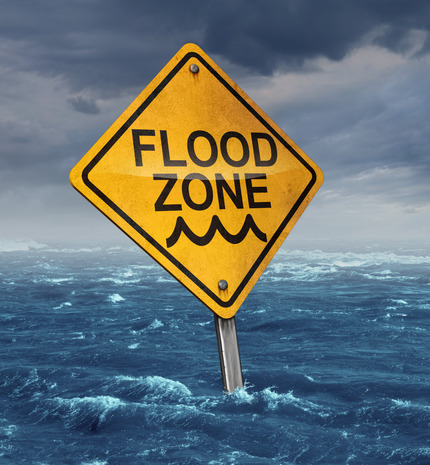The last few years have seen catastrophes of tremendous magnitude in the U.S. From the most recent Hurricane Joaquin to Katrina and Sandy, from wildfires to floods and mudslides, the potential for disaster seems boundless. While no one would tell you to curl into the fetal position with the covers over your head in fear of a potential storm that might never come, that doesn’t mean you should not take steps to be prepared. This is particularly true if you are the owner of a small business, which can be even more vulnerable to the financial consequences of these turbulent events.
Just think about the possible fallout should your business be damaged by storm, earthquake, or flood. You could experience power outages, disruption of regular business, lost employee hours, an inability to receive the business supplies you need, rising insurance costs, breakdowns in your equipment, and an inability to gain access to water, gas and electricity. Any or all of these could make it very difficult for you to keep your doors open or bounce back.
What’s more, don’t just assume that your insurance will come to the rescue and make all of your problems go away after a catastrophe. One of the most common mistakes that entrepreneurs make after a natural disaster is to assume that their commercial property insurance will automatically cover flood damage. The bad news is that this is not the case. In fact, although flood damage costs an estimated $50 billion in property loss each year, standard policies don’t cover it. It is crucial that you make sure that yours does or that you add the necessary rider to protect yourself before you have the need. Also, keep in mind that disasters aren’t limited to hurricanes and floods; ice storms, blizzards, wildfires, tornados, drought, and temperature extremes must also be planned for.
If you are one of the estimated 57 percent of American businesses that do not have a disaster plan in place, consider yourself warned. Before disaster strikes, put preventive measures into action. Develop procedures for emergencies and share them with your staff. Consult with your insurance agent to be sure that your policies cover all contingencies, purchasing additional coverage if necessary. Take pictures of all of your valuables and store them well away from your business property. These can be used as proof to support your claim should disaster strike. Buy a power generator, which could be invaluable in keeping your doors open in the event of an extended power loss. Store important data and objects on higher floors, which are less likely to suffer from flood damage. Finally, back up all of your critical data and keep the hard drives off-site.
Disaster preparedness is not a panacea that will keep the problems away or make your business immune from damage. However, planning for potential difficulties is much different from being fearful and paranoid. Preparedness can give you a feeling of control and readiness that can go a long way in helping you stay on your feet in the midst of even the most powerful storm or other natural disaster.

